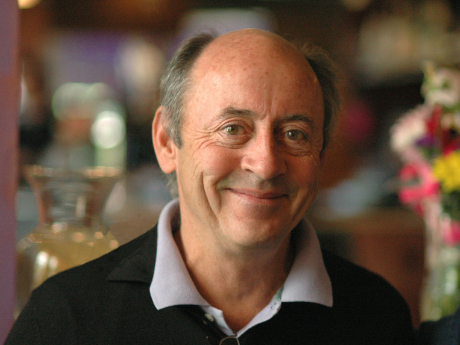First Loves
Billy Collins: First Loves

The Flea
Mark but this flea, and mark in this,
How little that which thou deniest me is;
It sucked me first, and now sucks thee,
And in this flea our two bloods mingled be;
Thou know’st that this cannot be said
A sin, nor shame, nor loss of maidenhead,
Yet this enjoys before it woo,
And pampered swells with one blood made of two,
And this, alas, is more than we would do.
Oh stay, three lives in one flea spare,
Where we almost, nay more than married are.
This flea is you and I, and this
Our marriage bed, and marriage temple is;
Though parents grudge, and you, w'are met,
And cloistered in these living walls of jet.
Though use make you apt to kill me,
Let not to that, self-murder added be,
And sacrilege, three sins in killing three.
Cruel and sudden, hast thou since
Purpled thy nail, in blood of innocence?
Wherein could this flea guilty be,
Except in that drop which it sucked from thee?
Yet thou triumph’st, and say'st that thou
Find’st not thy self, nor me the weaker now;
’Tis true; then learn how false, fears be:
Just so much honor, when thou yield’st to me,
Will waste, as this flea’s death took life from thee.
Cruel and sudden, hast thou since
Purpled thy nail in blood of innocence?
Wherein could this flea guilty be,
Except in that drop which it sucked from thee?
—John Donne, from "The Flea"
My first love was a tall, thin brunette named "The Flea" by John Donne that I met when I was in college. Prior to that, of course, I had been exposed to many species of writing, great and small. All sorts of rhymes, stories, and poems had made their impressions on me, as they did on all of us--everything from the venerable Mother Goose to the Latin responses to the Mass that I memorized and recited as an altar boy. In the house I grew up in, reading was a perfectly acceptable activity and before I had learned to read, my mother read to me, especially from the classics of sentimental animal fiction-books like "Black Beauty" and "The Yearling." Plus she housed hundreds of lines of verse in her head, memorized when she was a girl. Lines for every occasion. Whenever we were outdoors on a cold, windy day, for instance, she would never fail to intone these lines from "As You Like It":
Blow, blow, thou winter wind,
Thou art not so unkind
As man's ingratitude;
Thy tooth is not so keen,
Because thou art not seen,
Although thy breath be rude.
But of all my early flirtations and infatuations with language, I think of "The Flea" as my first love because it was the first poem I had ever read that was so good--so ingenious, so witty, so bold in its sexual playfulness--that I wished to heaven that I had written it. I now realize that the distinct twinge of jealousy I felt toward Donne was the first symptom of what was to develop into a chronic love sickness for poetry.
If the ultimate inspiration for any poem is another poem which is perceived, as someone put it, "as an object of rivalry and imitation," then "The Flea" was the first poem to turn me green. I could not believe how cleverly the speaker had woven his seductive argument around the presence of this tiny insect, "where we almost, nay more than married are." And I was amazed at how the woman's presence and her very responses were contained in the white spaces between the stanzas so that the reader was made witness to both sides of this lively give-and-take, this intimate battle of wits. What's more, the poem is the only seduction poem I know written by a man that credits the female object of desire with a measure of mental quickness equal to his own. Donne's mistress, who "triumph'st," is not some Elizabethan sonnet bimbo who needs only to be told that her cheeks are like roses.
I even remember the moment when I was smitten. I was sitting with a friend out on my sloping lawn in front of the college library on one of the first balmy days of spring. The poem had been covered the previous hour in a class on metaphysical poetry, and I flipped back to its page in a light-blue anthology of Seventeenth-Century Literature, which I still have here on a shelf. Then I stood up and read it out loud. "That is too much, my man," my friend said (for that was how we spoke in the days of beatnik glory), and we both laughed out loud and shook our heads over what a droll cat this John Donne was. And from that day forward, I should admit, if one of us found ourselves in the presence of an attractive girl, we would sometimes put on our best metaphysical face, look her directly in the eye, and implore her to "Mark but this flea, and mark this, / How little that which thou deniest me is." Never, of course, to any avail. Poetry, as we know, makes nothing happen.
Originally published in Crossroads, Spring 1998.


